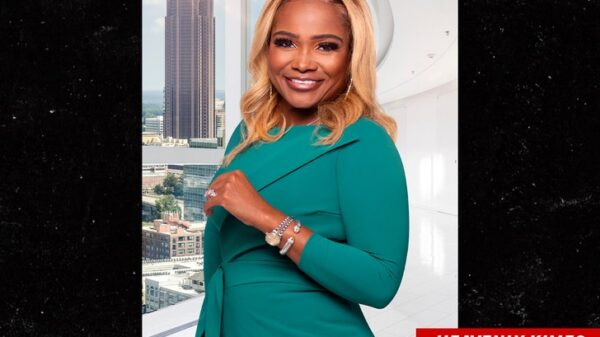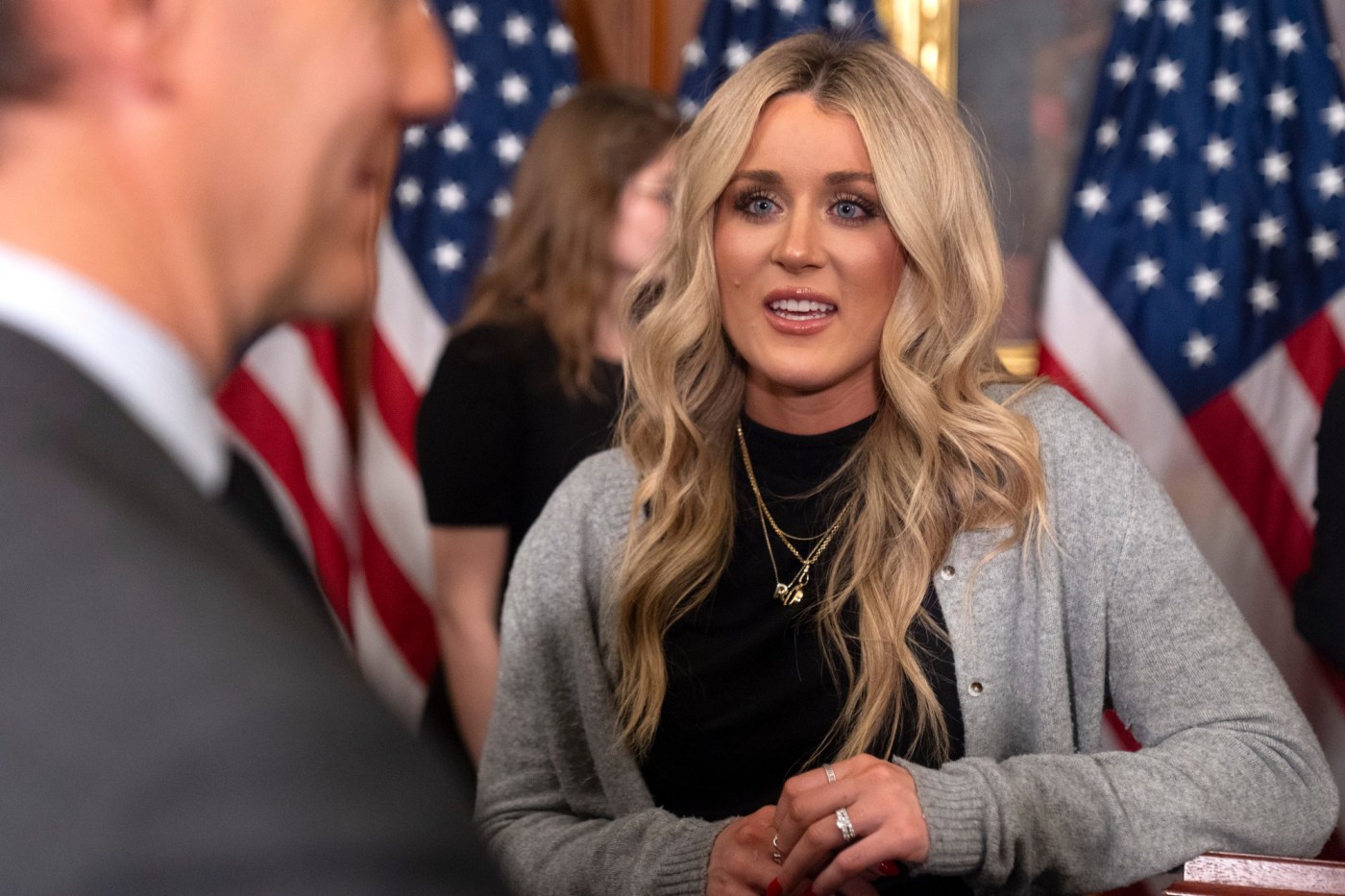Representative Alexandria Ocasio-Cortez recently ignited a heated debate over women’s rights with a tweet directed at former collegiate swimmer Riley Gaines. Ocasio-Cortez’s comment, “Maybe if you channeled all this anger into swimming faster you wouldn’t have come in fifth,” has drawn widespread attention and criticism, prompting a response from many who believe it reflects a troubling trend in contemporary feminism.
Gaines, who has become a prominent voice in the discussion about fairness in women’s sports, responded to Ocasio-Cortez’s tweet, stating, “Imagine hating another woman for defending women, then mocking her for not beating a man.” This response quickly gained traction on social media, amassing over 62,000 likes in a matter of hours. The public’s reaction underscores a growing frustration among many Americans regarding the perceived hypocrisy in some feminist circles.
Ocasio-Cortez later escalated her remarks, challenging Gaines to “get a real job” instead of being a vocal advocate for women’s rights. Critics argue that by referring to Gaines simply as a “person,” Ocasio-Cortez depersonalized her, which undermines the very essence of women’s advocacy. This incident has raised questions about leadership and the responsibilities that come with political power, particularly in the context of women’s rights and representation.
Shifting Dynamics in Feminism
The exchange between Ocasio-Cortez and Gaines highlights a significant shift in the feminist movement, with many questioning whether it still prioritizes the needs and experiences of biological women. Gaines has faced considerable backlash for her stance on competing against biological males in women’s sports, advocating for equal opportunities based on fair competition rather than identity politics.
According to various polls, approximately 80% of Americans support the notion that biological differences should dictate competitive fairness in sports. Yet, prominent voices within the political left, including Ocasio-Cortez, often dismiss such views as intolerant or regressive. Critics argue that this creates an environment where women who express concerns about fairness are marginalized rather than uplifted.
Gaines’s advocacy places her at the forefront of a broader conversation about the rights of women in sports and society as a whole. She insists she is not asking for special treatment; rather, she seeks the same fairness that every female athlete deserves. Instead of engaging with her concerns, critics often resort to ridicule or condescension, which many perceive as a betrayal of feminist principles.
The Role of Women in Contemporary Discourse
The implications of Ocasio-Cortez’s comments extend beyond the realm of sports. Many women feel that their voices are increasingly sidelined if they do not conform to specific narratives or ideologies. The phrase “believe women” has been co-opted into a selective standard, often leading to discontent among women who do not align with prevailing viewpoints.
Reflecting on her own experiences, a San Diego-based parent advocate and chairwoman of Restore San Diego, Amy Reichert, expressed her disappointment. Reichert recalls a time when feminism focused on achieving equal pay and opportunities rather than enforcing specific ideologies. She argues that the current climate demands women align with particular narratives or risk being dismissed or humiliated.
The discourse surrounding women’s rights has shifted dramatically over recent decades. As Reichert points out, the same individuals who once advocated for women’s voices now often call for silence if those voices challenge dominant narratives. This contradiction raises critical questions about the future of feminism and whether it can truly represent all women, especially those who hold dissenting opinions.
The ongoing debate exemplifies a growing divide within feminist movements and raises concerns about the direction in which these discussions are heading. The notion of sisterhood seems increasingly challenged as women are told to remain silent in the face of policies that could undermine their rights and opportunities.
Riley Gaines has emerged as a symbol of resistance for many women who feel their rights are being overshadowed by a focus on inclusivity that often overlooks biological realities. Her fight for fairness resonates with countless others who see their achievements and spaces at risk of being erased in the name of progressive policies.
As the conversation continues, it remains clear that the intersection of women’s rights and identity politics will remain a contentious topic. Ocasio-Cortez’s comments serve as a stark reminder of the complexities and challenges facing women today as they navigate the evolving landscape of feminism. The stakes are high, and the need for a respectful and inclusive dialogue is more crucial than ever.



































































